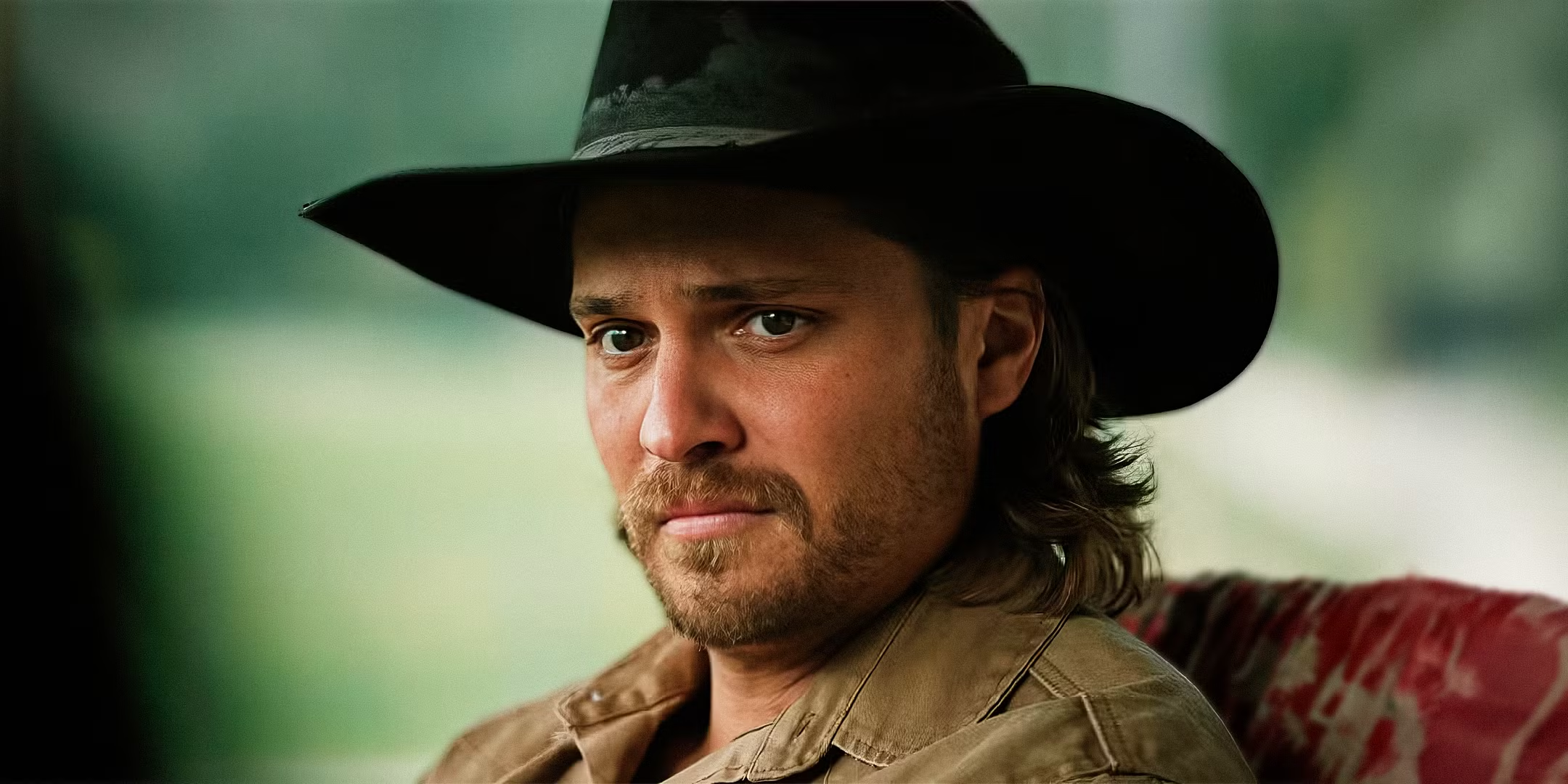
Luke Grimes’ ‘Yellowstone’ Spin-Off Is Controversially Removing a Series Trademark
- by Buny
- Posted on July 21, 2025
‘Y: Marshals’ Leaves Montana Behind — And ‘Yellowstone’ With It
“It’ll feel like a different world, but Kayce will be ready for it.”
With that quietly defiant promise, Y: Marshals positions itself not just as a spin-off, but as a reinvention. As Yellowstone fans bid farewell to the Dutton family saga with its final season in 2024, the franchise is undergoing its most radical shift yet. Y: Marshals, centered on Luke Grimes’ Kayce Dutton, takes a bold step into new creative territory—one that trades sweeping ranch vistas and cowboy politics for the sharp edge of federal law enforcement. The change signals far more than a shift in scenery—it’s a symbolic departure from the themes and traditions that Yellowstone built across five turbulent, and wildly successful, seasons.

A New Frontier, A New Format
While the mainline series explored legacy, land, and loyalty under the Big Sky of Montana, Y: Marshals recasts the story into something leaner, grittier, and more contemporary. It’s a genre leap—from a neo-Western family epic into procedural drama. If Yellowstone was Shakespeare in cowboy boots, Y: Marshals feels closer to Justified, Longmire, or even True Detective in its tone and ambition.
That shift isn’t accidental. It’s part of a larger creative decision to sever expectations. After all, if Kayce is to stand alone, his world must change. The backdrop that once defined him—the Dutton Ranch—is no longer his primary battleground. His new terrain? The messy, morally complex world of U.S. Marshal work. His frontier is no longer a place to defend but a structure to navigate.
While the series may still technically take place in Montana, the show’s production has notably moved away from the iconic landscapes of the original series. This isn’t just about logistics or tax breaks—though they may play a part—it’s a deliberate reorientation. By detaching from the Dutton Ranch and the mythos of Yellowstone’s visual identity, the creators are signaling that Y: Marshals wants to stand entirely on its own.
Leaving the Ranch Behind
The absence of Paradise Valley’s postcard-perfect mountains might at first feel like a loss to longtime fans. After all, that rugged, expansive terrain was almost a character of its own—beautiful, brutal, and unyielding. But for Y: Marshals, that void could become its greatest asset. Stripped of Yellowstone’s grandeur, the show can explore new visual languages, new towns, new enemies, and new truths. The scenery isn’t just changing—it’s evolving.

This thematic shift also mirrors Kayce’s character development. A man once torn between his past as a Navy SEAL and his loyalty to his family now finds a third path—a path of justice, however murky. His previous arcs have seen him as a protector, a soldier, and a father. Now, Y: Marshals recasts him as a man reckoning with what justice really means in a lawless land. In many ways, the show becomes a character study—Kayce navigating a world where he can’t rely on blood ties, only on his own code.
Kayce Dutton: From Soldier to Lawman
And that brings us back to Luke Grimes. His portrayal of Kayce was always rooted in quiet intensity—a man of few words, many scars, and a strong sense of personal integrity. Grimes didn’t return to the role for a paycheck. He returned because the story demanded it. And by all accounts, Y: Marshals offers something with real weight.
Grimes has been vocal in interviews that he didn’t want a spin-off just for the sake of content. There had to be a reason. And with Kayce being repositioned not just physically but spiritually, Y: Marshals appears to be that reason. This isn’t just “Kayce rides again.” It’s a meditation on justice, personal responsibility, and perhaps even redemption.
Procedural storytelling gives Y: Marshals the opportunity to explore a wider range of narratives. Where Yellowstone was often serialized and intimate, Y: Marshals can move briskly—case by case, town by town—offering both tightly wound drama and broader thematic arcs. And while the show will surely retain some of the grit and gunfights fans crave, it’s the shift in emotional tone that may resonate most. It’s less about empire and more about duty.
More Than a Spin-Off

In many ways, Y: Marshals is a gamble. It risks alienating fans who fell in love with the Dutton family drama. But it also stands to gain new viewers, ones who prefer procedural structure and contemporary storytelling over intergenerational ranch feuds. Paramount seems to understand that the Yellowstone universe must evolve if it’s to survive beyond the Duttons.
So while the ranch gates may have closed behind him, Kayce Dutton isn’t done. Not by a long shot. As he steps into his next chapter—with a badge, a mission, and no safety net—it’s clear that Y: Marshals is more than a continuation.
It’s a reinvention.
‘Y: Marshals’ Leaves Montana Behind — And ‘Yellowstone’ With It “It’ll feel like a different world, but Kayce will be ready for it.” With that quietly defiant promise, Y: Marshals positions itself not just as a spin-off, but as a reinvention. As Yellowstone fans bid farewell to the Dutton family saga with its final season…